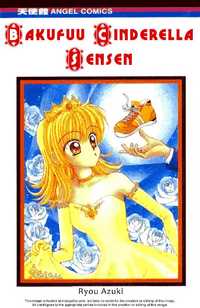Rebel Summer by Cindy Steel is a poignant, defiant exploration of self-discovery and youthful rebellion set against a backdrop of balmy summer days and nostalgic, almost whimsical, small-town charm. With a narrative that beautifully entangles innocence with a dive into deeper societal issues, Steel pens a memorable tale that resonates deeply with those on the brink of adulthood.
The story unfolds in the sweltering heat of Marigold, Indiana, where teenager Effie Harper finds herself contending with the typical, yet overwhelming, constructs of high school life, peer pressure, and familial expectations. Yet, it is the summer before her senior year that promises to be anything but typical when she meets the enigmatic Dylan, who arrives in Marigold on a rusting bike with stories that stretch as far as the roads he’s traveled. Steel’s characters leap from the page - vibrant, flawed, and achingly real. Effie’s journey of introspection is both universal and intimate, making her not just a protagonist, but a companion through the turbulence of adolescence.
Indeed, Rebel Summer shines brilliantly when delving into the dynamics of friendships and relationships. Cindy Steel has a knack for capturing the raw, untamed energy of teenage interactions with dialogues that crackle with authenticity. The dialogues aren't just exchanges but revelations, offering peeks into the characters’ deepest vulnerabilities and fears. Dylan, as the catalyst of the summer’s upheaval, is crafted with a careful balance of mystery and openness. His philosophy of life, which Effie comes to know and challenge, acts as a mirror to her own unseen desires and potentials.
A hallmark of Steel's writing is her treatment of setting. Marigold, with its drowsy streets and forgotten corners, is not merely a background but a living entity in this novel. Steel imbues the town with personality, intertwining it so seamlessly into the plot that one can almost smell the rain-drenched fields and feel the oppressive heat that propels the characters into the lake, seeking solace and escape. It’s in these meticulously described settings that some of the novel’s most poignant moments play out—Effie and Dylan’s midnight swim, the clandestine gatherings at the old factory grounds, the thrill of the county fair—all drawn with such vividness that they linger long after the last page is turned.
Yet, it's not all idyllic. Cindy Steel addresses issues of social stratification, economic disparity, and the quest for personal identity with an honesty that avoids preachiness. The consequences of the characters' actions are presented with a stark realism that is sometimes harsh, often heartrending, but always deeply empathetic. Steel doesn't shy away from showing the sometimes painful growth that comes from making difficult choices, and this adds a layer of sincerity to the narrative that elevates it from a simple coming-of-age story to a compelling commentary on contemporary youth.
Structurally, Steel employs a dual timeline—an effective tool that enhances the depth of the narrative. The present and flashbacks are woven with skill, each feeding into a growing tension that culminates in a climax both surprising and inevitable. This method allows readers to fully appreciate the growth of the characters, particularly Effie, who emerges not only scathed but profoundly changed by her experiences. Her evolution, subtly drawn from page to page, serves as a testament to the painful, yet beautiful process of growing up.
Critically, while the novel is a gem, there are moments when the pacing stumbles slightly—perhaps an inevitable consequence of such a reflective and introspective approach. Some readers might find these slower parts a tad too lingering, though they do contribute significantly to the emotional heft of the story. Moreover, Dylan's character, while intriguing, sometimes borders on being too ideal a figure, his mystique at times overshadowing his realism. However, these are minor quibbles in a work that is otherwise a masterful portrayal of adolescence.
Overall, Rebel Summer is a profoundly moving, beautifully written exploration of youth, with all its tumult and triumphs. Cindy Steel has crafted a world so captivating, so achingly honest, that it does not merely demand the reader's attention—it seizes it, holds it, and haunts it. This novel is an exquisite addition to the genre of young adult literature, perfect for fans of John Green and Sarah Dessen, and promises to resonate with anyone who remembers the poignant bittersweetness of growing up. As the summer ends in Marigold, it leaves behind memories that, much like the characters themselves, are destined to evolve but never fade.
























Reviews 0
Post a Reviews: